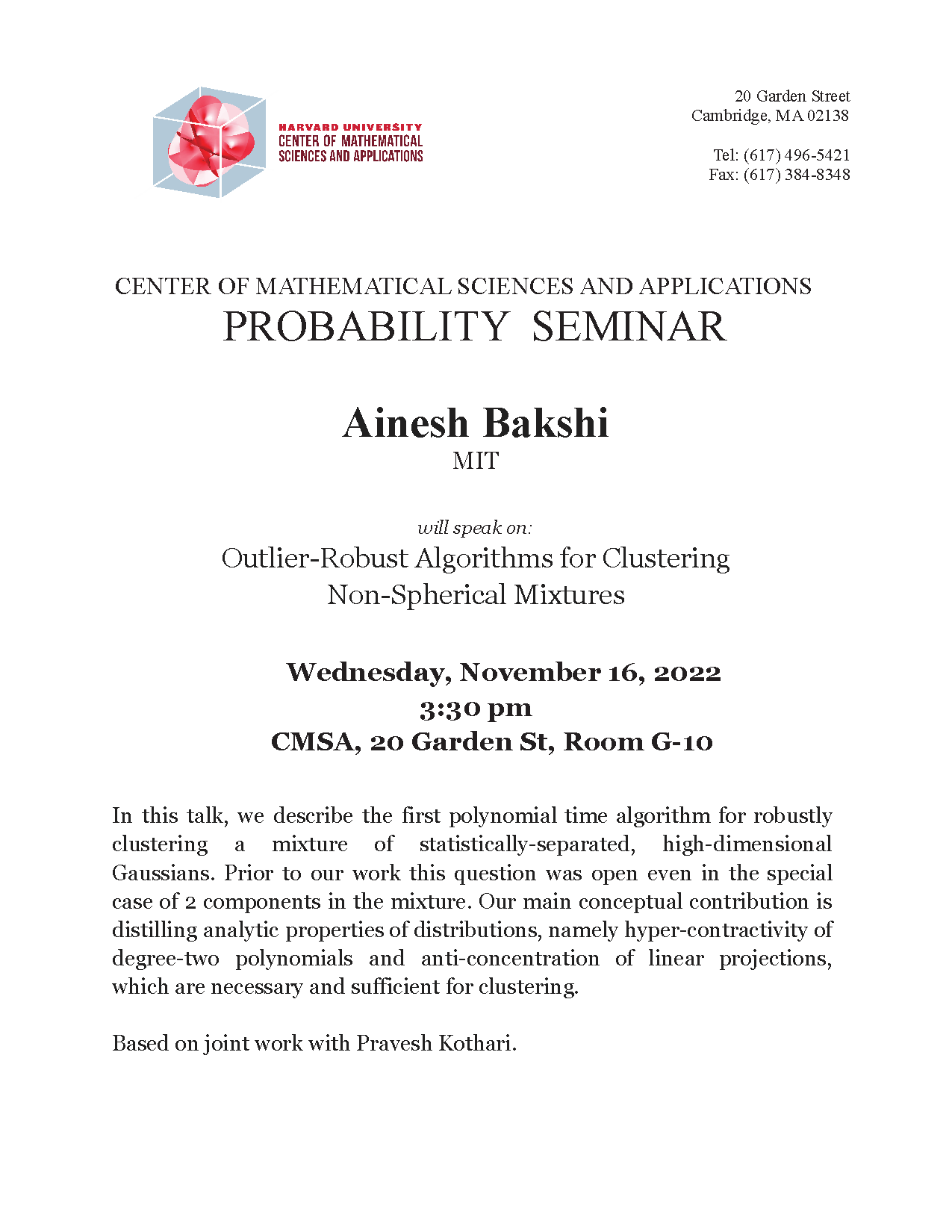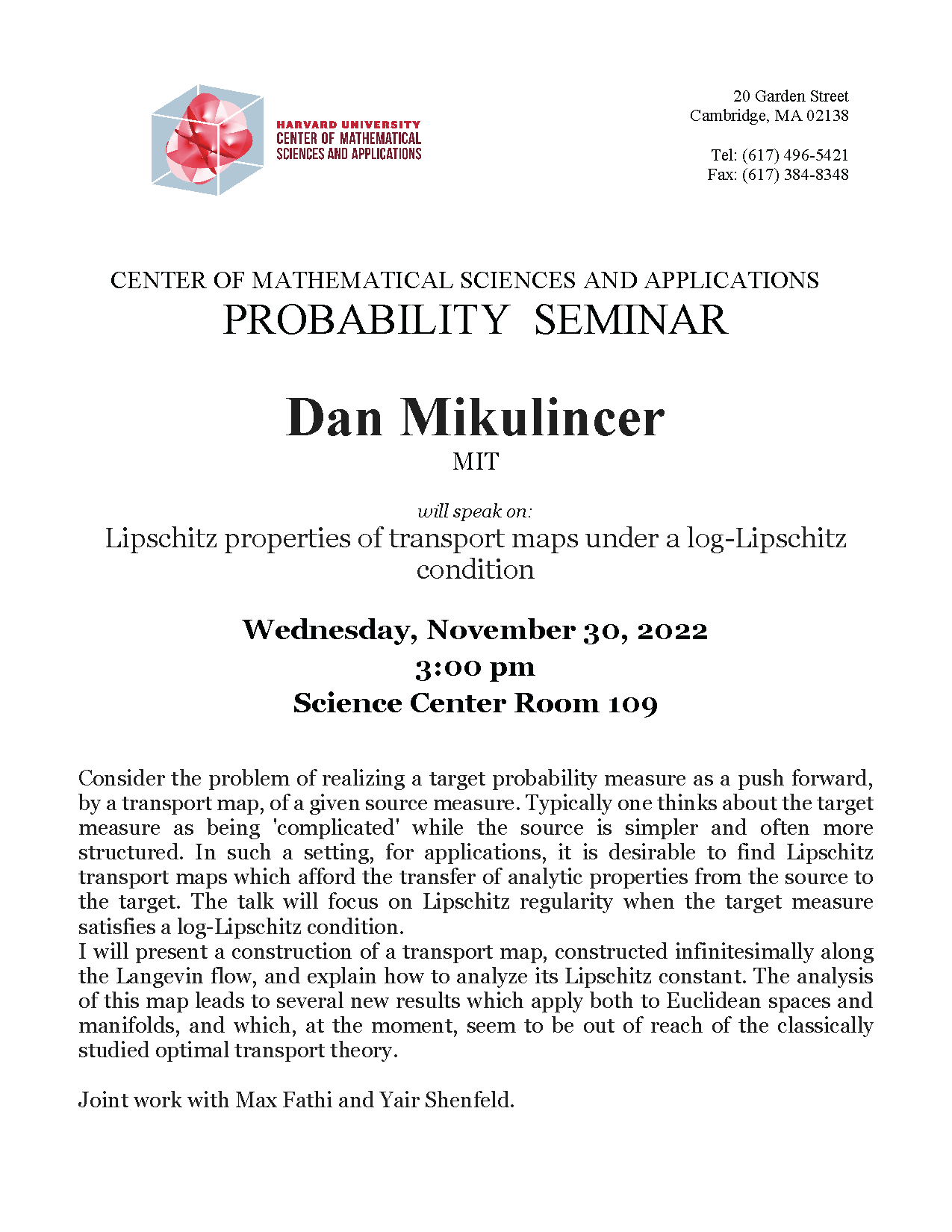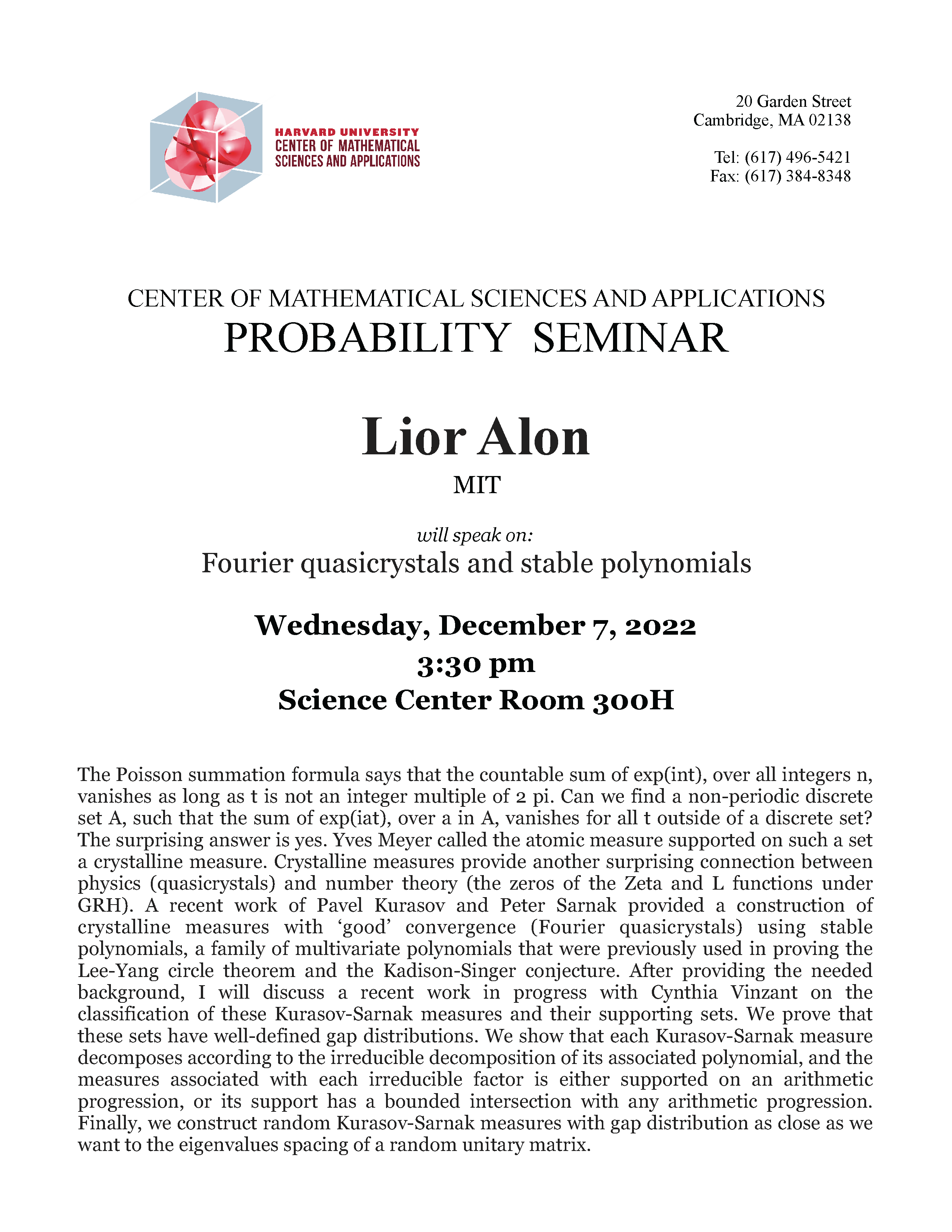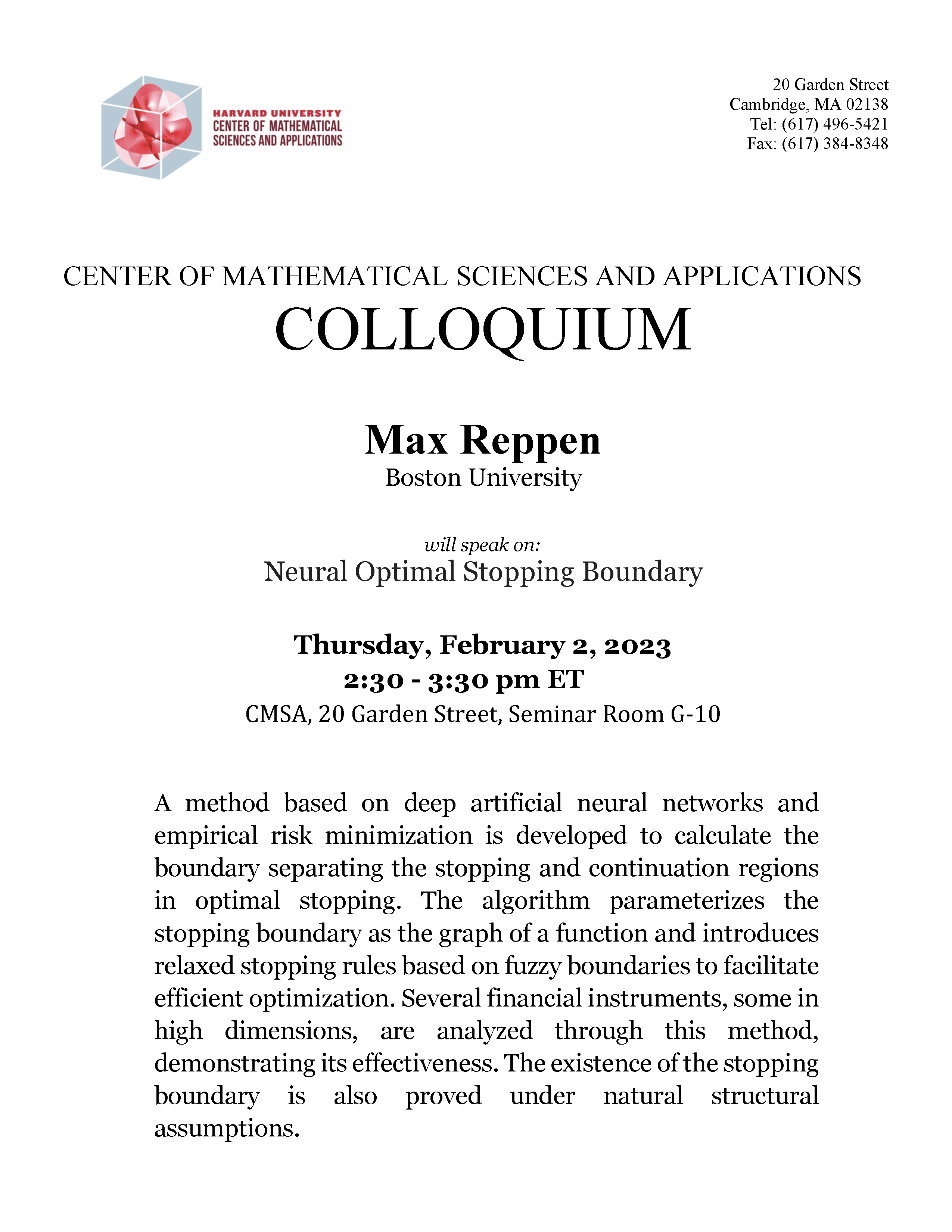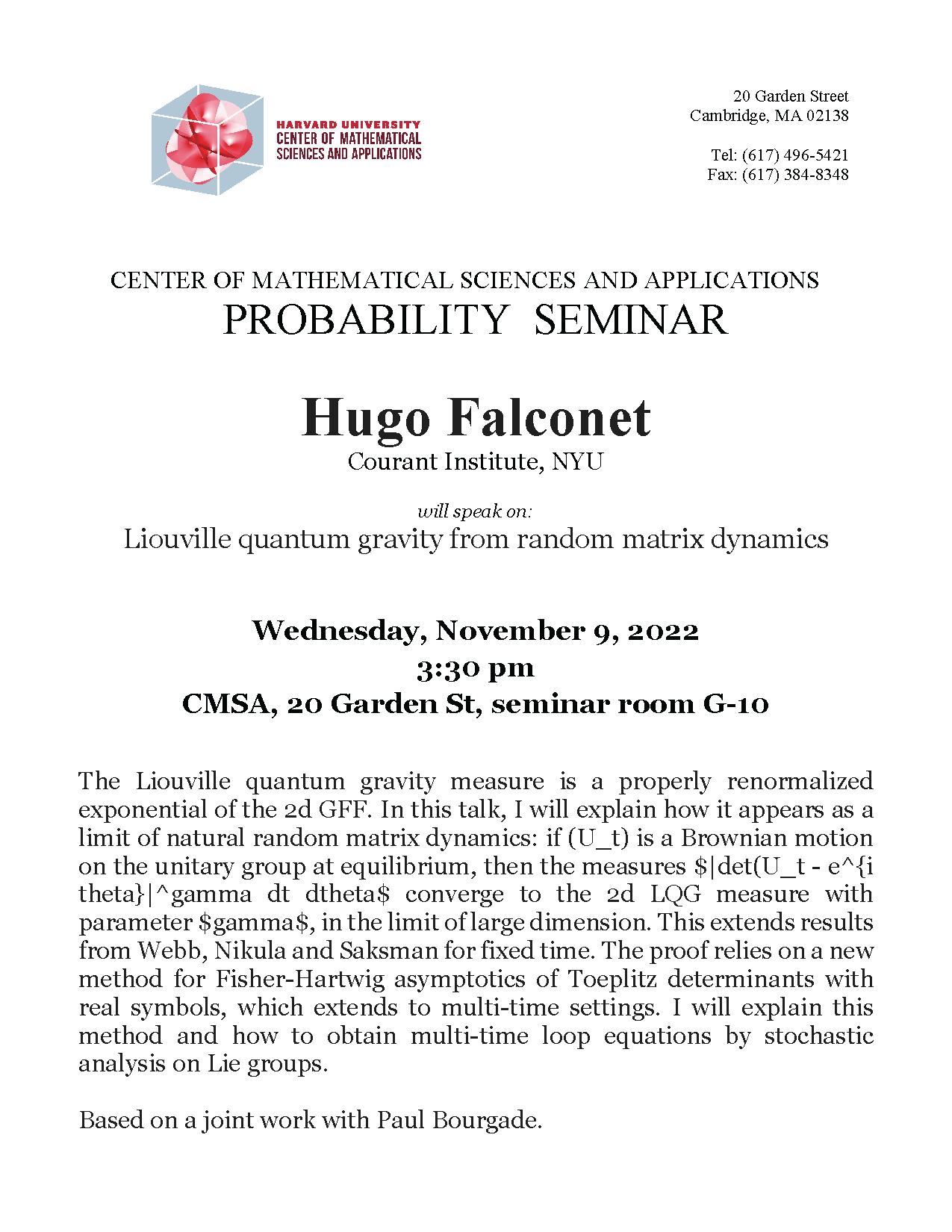
Liouville quantum gravity from random matrix dynamics
CMSA Room G10 CMSA, 20 Garden Street, Cambridge, MA, United StatesProbability Seminar Speaker: Hugo Falconet (Courant Institute, NYU) Title: Liouville quantum gravity from random matrix dynamics Abstract: The Liouville quantum gravity measure is a properly renormalized exponential of the 2d GFF. In this talk, I will explain how it appears as a limit of natural random matrix dynamics: if (U_t) is a Brownian motion on the unitary […]

